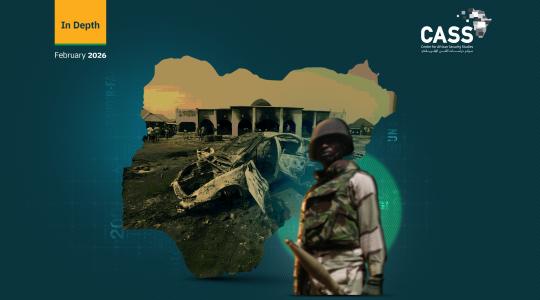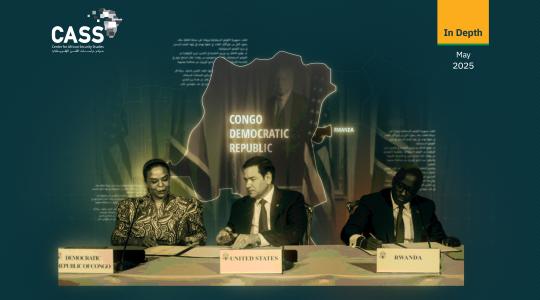The attendance of Morocco’s Foreign Minister Nasser Bourita at an African summit on Fertilizers and Soil Health, held in the Kenyan capital Nairobi from May 7-9, had far-reaching political dimensions. It represented a turning point in relations between the two parties, a consequence of Kenyan President William Ruto taking power in Kenya in September 2022. During his election campaign, he had heavily emphasized the need to improve Kenya’s relations with African countries, especially Morocco.
A month before Bourita’s visit, Kenya had appointed diplomat Jessica Muthoni Gakinya as its first ever ambassador to Morocco. Gayinka had succeeded in convincing the Kenyan parliament’s foreign relations committee of the need to fix the country’s political ties with Morocco and boost their economic relations, especially in the areas of phosphates and fertilizers, tea and coffee.
This rapprochement is part of Morocco’s new policy of attempting to drive wedges between the Polisario Front and its state backers. Kenya is one of the most prominent of these countries; many top military officials in Kenya have loyalties towards Algeria and South Africa, which are the main backers of the Polisario and Western Saharan independence from Morocco. The new president had announced that he was working to cancel Kenya’s recognition of the Polisario Front, but he backed down after pressure from Algeria and South Africa.
Despite this, since 2020, quiet Moroccan diplomacy has managed to convince many Kenyan parliamentarians of the need to build more stable relations with Morocco. Bourita capped his visit to Nairobi with talks with the Kenyan president on the practical the steps needed to establish a huge fertilizer plant in Kenya, funded by Morocco’s vast state-owned Office Chérifien des Phosphates (OCP), a project Morocco had previously discussed with Nigeria and Ethiopia. They also talked about establishing a direct air link between Casablanca and Nairobi, and creating an annual investment forum bringing together businessmen from the two countries.
Algeria had clearly detected signs of rapprochement between Kenya and Morocco, as it quickly attempted to derail it by increasing its own shipments of aid—in the form of fertilizer—to the East African nation. In January, it had announced it would provide 16,000 tons of “urea 46” fertilizer to Kenya, part of what Algeria describes as its “policy of solidarity to advance development on the African continent.”
These moves show that the long-running struggle between Morocco and Algeria to win over East African countries in general, and Kenya in particular, is alive and well. This struggle also explains why Algerian President Abdelmadjid Tebboune dispatched Algerian Foreign Minister Ahmed Attaf to Nairobi in early April 2024, with the aims of “strengthening relations of cooperation between the two countries and consolidating their consultation and coordination on regional and international developments.”
Attaf’s visit coincided with Kenya’s announcement that it intended to open an embassy in Morocco, mend ties and build closer economic relations with the Kingdom.
Algeria is well aware of the clout and reach of the OCP, a powerful tool Morocco can use to win over countries suffering from food insecurity, such as Ethiopia, Nigeria, Niger and Kenya. All these nations are in urgent need of agricultural fertilizers, giving Morocco, the world’s top exporter of Calcium phosphates, an influential source of leverage to bring these countries closer to its point of view on the Western Sahara issue.
Sources told the Center for African Security Studies Nigerian President Bola Tinubu may play a role in improving relations between Morocco and Kenya under the latter’s new president, especially given that Tinubu’s own country has mended its ties with Morocco. Morocco’s King Mohammed VI may invite the Kenyan president to visit the kingdom this summer, where they could sign agreements on cooperation in various areas.
As Morocco and Kenya improve their economic and diplomatic ties, and perhaps soon step up their military cooperation, Morocco may be heading for a key prize: persuading Kenya to freeze its relations with the Polisario Front.
If it did, it would be reaping the rewards of building a network to protect its interests in East Africa, which has long been a stronghold of support for the Sahrawi independence movement. Kenya withdrawing its supporting from the Polisario would be a major symbolic victory for Morocco on the Western Sahara issue. It would also be an affirmation of Morocco’s increasing diplomatic clout in the east of the continent, with the accompanying decline in Polisario support.




